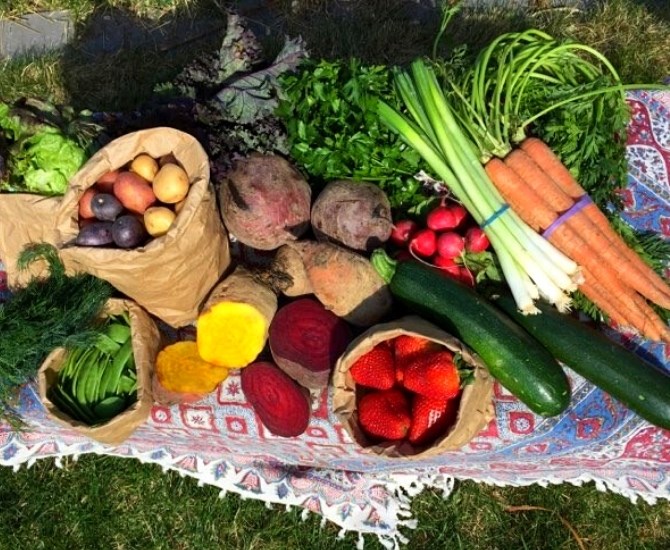
Image Credit: FACEBOOK/ Winterstead Farms
September 02, 2020 - 6:30 AM
If you’ve been thinking that trip to the grocery store is actually costing you more since COVID-19 hit, you’re right.
Statistics Canada posts average monthly retail prices for food and other products.
By editing out things like toilet paper, toothpaste and cigarettes, the list contains 43 food items that jumped 9.9 per cent in price between February and the end of June.
The good news is that the increase was only 6.5 per cent by the end of July and, if some predictions hold true, will be down to four per cent by the end of the year.
“Beef is at historical highs, which has nothing to do with COVID actually,” Sylvain Charlebois told iNFOnews.ca. “But there are COVID-related factors. The cost to operate a food business now is very high.”
Charlebois is a professor in food distribution policy and senior director of the Agri-Food Analytics Lab at Dalhousie University in Halifax.
Before COVID-19, Canada had the fifth cheapest food basket in the world, relative to income, he wrote in Canadian Grocer magazine.
“Labour costs are going up as companies are trying to rotate personnel so they can physically distance from one another, and the cost of equipment and specialized machinery are also going up,” he wrote. “We will start seeing ‘anti-virus’ food packaging and other measures to reassure nervous consumers — again, more costly.
“Grocery stores are spending, on average, five per cent more to operate these days compared to pre-COVID. When margins are at one per cent, something has got to give. We may see fewer stores, less choice, or higher prices. Given the high-volume, low-margin nature of the business, it will be impossible to see an entire supply chain absorb the COVID-19 mega-shock without seeing prices reaching new heights in years to come.”
While beef futures were already high, the cost of one kilogram of sirloin steak, for example, jumped almost 16 per cent from $21.67 in February to $26.68 in June before falling back to $24.45 in July.
Other beef products saw similar increases while the price of one kilogram of chicken actually fell from $7.46 in February to $6.87 in June before rebounding to $7.41 in July.
The price of 2.5 kg of flour went up by 33 cents between February and July, oranges by 94 cents a kilogram and carrots by 65 cents a kilogram.
With droughts and COVID-19 in states like California and Arizona, it’s hard to predict what will happen to fresh produce prices in the fall, Charlebois said.
Overall, Statistic Canada’s list of 43 products climbed more than $25 to $302.47 in June from $275.25 in February before hitting an $18 difference in July.
Despite these already high costs, Charlebois is sticking by Canada’s Food Price Report’s prediction that food prices will be up four per cent at the end of the year. That’s despite the fact that food prices typically spike in December.
Even if he’s right, there’s another factor at play here that was not considered when the prediction was made – the fact that overall inflation is virtually at zero.
“When the general inflation rate is very low and food inflation rate is very high, people will notice,” Charlebois said.
The only saving grace may be that people are spending less in restaurants, cooking more at home and wasting less of the food they do take home, simply because they’re in the kitchen more.
“On average, Canadian households can spend $4,560 at restaurants and on food consumed outside the home,” Charlebois wrote. “That is not happening right now.”
To contact a reporter for this story, email Rob Munro or call 250-808-0143 or email the editor. You can also submit photos, videos or news tips to the newsroom and be entered to win a monthly prize draw.
We welcome your comments and opinions on our stories but play nice. We won't censor or delete comments unless they contain off-topic statements or links, unnecessary vulgarity, false facts, spam or obviously fake profiles. If you have any concerns about what you see in comments, email the editor in the link above.
News from © iNFOnews, 2020